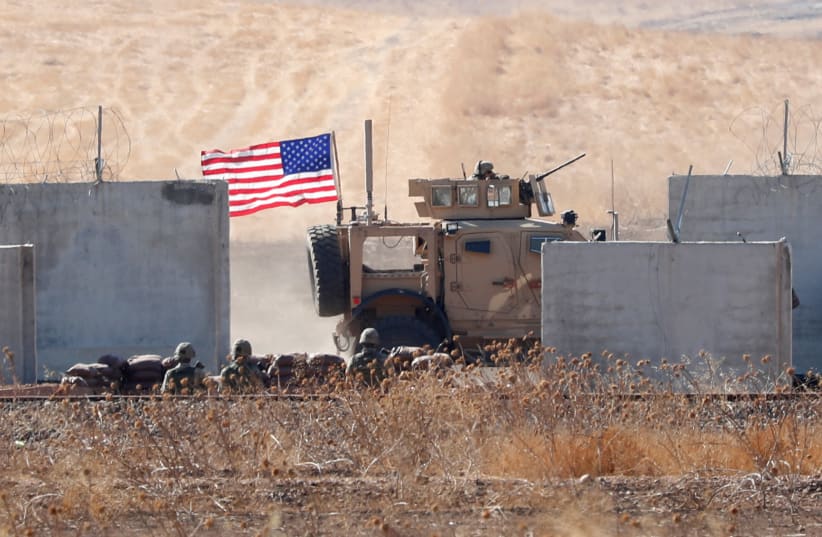The US entered Syria to fight ISIS, but it also once supported the Syrian rebels. Today, the US says it guards “oil” in eastern Syria and has a base at Tanf near the Jordanian border. The US works closely with the Syrian Democratic Forces (SDF), a multiethnic group that is linked to Syria’s Kurdish minority.Last October, Turkey threatened US forces in Syria and ordered the US to leave, attacking the SDF until Russia and the Syrian regime brokered a ceasefire with Ankara that saw Russia deploy forces to areas formerly under US influence. US President Donald Trump has vowed to withdraw from Syria, but he has been critiqued for abandoning US partners who sacrificed thousands of lives fighting ISIS.The discussions last week included a 14-point statement. Much of the language was general but was also aimed at undermining the US role in Syria. Iranian President Hassan Rouhani, Russian President Vladimir Putin and Turkish President Recep Tayyip Erdogan agreed to the following points:They “emphasized their strong commitment to the sovereignty, independence, unity and territorial integrity of the Syrian Arab Republic, as well as the goals and principles of the UN Charter, stating that these principles should be respected by all, and no action, regardless of its perpetrators, should be taken.”They rejected the attempt to create new “realities under the pretext of fighting terrorism” and slammed the creation of “autonomy.”They also said they would work against “separatist agendas.”This language is aimed against the SDF rather than Turkish-backed extremist groups that control Idlib and illegally occupy Afrin in northwestern Syria. Turkey has invaded areas in Syria and uses proxy forces to run them. But the language attacking “autonomy” is a reference to the Rojava region and the various autonomous administrations in eastern Syria where the US and SDF are. Turkish-backed Syrian rebel groups do not seek “autonomy.”The statement, according to a full version published at Iran’s Tasnim media, also “examined the situation in northeastern Syria and stressed that achieving security and stability in the region is possible only through maintaining the sovereignty and territorial integrity of the country, and for this purpose [Russia, Turkey and Iran] agreed to coordinate their efforts. The presidents expressed their opposition to the illegal seizure and transfer of oil revenues belonging to the Syrian Arab Republic.” This is a reference to US control of the oil in eastern Syria.The countries also said they would coordinate efforts against al-Qaeda and ISIS and reduce tensions in Idlib where the Syrian regime has clashed with Turkey.They also sought to address the COVID-19 pandemic in Syria and demanded more support for refugees. They slammed Israel for the “occupation of the Golan” and also attacked Israel’s actions in Syria: “The presidents described the Israeli military offensive in Syria as destabilizing and undermining the country’s sovereignty and territorial integrity and exacerbating tensions in the region.”Turkey, Iran, Russia: Israel strikes in Syria are destabilising https://t.co/nWgSBWzxf8
— Middle East Monitor (@MiddleEastMnt) July 2, 2020
Russia, Turkey and Iran coordinate anti-US Syria policy, slamming Israel
Today, the US says it guards “oil” in eastern Syria and has a base at Tanf near the Jordanian border.
